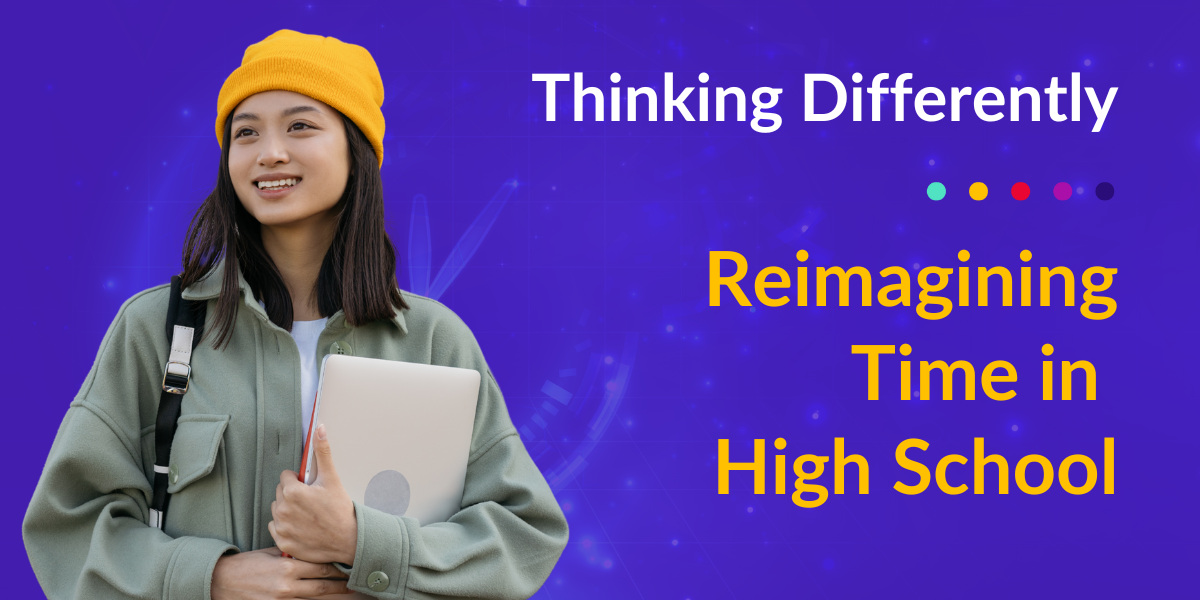Our world is facing numerous challenges, from climate change to economic inequality. And while it may seem as if they’re disconnected from what children are learning in classrooms around the world right now, it’s not. It’s on our education system to adapt to changes in how we live and work, and to be able to prepare students to not only respond to those challenges, but find solutions for them.
The Organisation for Economic Co-operation and Development (OECD) spells out these forces swirling around us and how they impact education in the recent report Trends Shaping Education 2022. Two co-authors of the report joined an NCEE webinar on February 7th to discuss some of the report’s takeaways for education in the United States and abroad. They are Tracey Burns, lead author of the report and senior analyst in the OECD’s Centre for Educational Research and Innovation (CERI), who presented a special in-depth look at the report’s findings and implications, and Marc Fuster, co-author of the report and an analyst in CERI.
The report “is intended to inform strategic thinking and stimulate reflection about the future of education,” Burns told viewers. “It is not a prescription of policy.”
Joining them was Peggy Brookins, President and CEO of the National Board for Professional Teaching Standards and a member of NCEE’s Board of Trustees. The discussion was moderated by NCEE CEO and Board Co-Chair Anthony Mackay.
The report seeks to inform the thinking of policymakers, researchers, educational leaders, administrators, and the broader public by covering a broad spectrum of topics including economic growth, living and working, knowledge and power, and identity and belonging—and what it means for education. This year’s report also focuses on the impact of COVID-19 on global trends and includes new sections inviting readers to reflect on how the future might differ from current expectations.
“What does this mean for the kinds of subjects we have to teach? The way we prepare students to take part in the labor market?” Burns reflected.
Knowledge and information has become more accessible through digitization, the report’s authors say, which in some ways has democratized education. Databases like Wikipedia continue to expand, scientific advancements are accelerating. Burns argued during the discussion that if we can harness the power of the digital space, and master those systems, we can tackle any issue we may face. During the pandemic, Fuster said, there was a rush to go digital, forcing a discussion on what parts of a curriculum to prioritize while students were kept from classrooms.
To help guide students through all that content, quality teachers will be even more important.
“We need to ensure there is an accomplished teacher in front of every student,” Brookins said. “It is imperative that we have leaders that understand how to support teachers as well as share expertise and resources.”
At the same time, however, the report highlights growing economic inequality and limited resources because of growing population and climate change. And while the COVID pandemic will not last forever, other major disruptions will arise.
Paying close attention to disadvantaged students will also be important moving forward, Burns said. If education can create more empowered citizens, then they can help address many of the challenges that go beyond education policy, she added.
“We need to have open conversations about what knowledge is, what evidence means, how we understand it, how we construct it,” Fuster said. “If we stick to just certain kinds of factual information that our educational experiences were based on, that’s not going to be enough.”
Visit OECD to view the report online or, for a shorter introduction to the report, see the OECD’s blog “Don’t look up; look forward: How are global trends shaping education?”
The full video of the webinar is below. You can view slides from the meeting here. You can also join the discussion on Twitter with the hashtag #TrendsShapingEducation.




